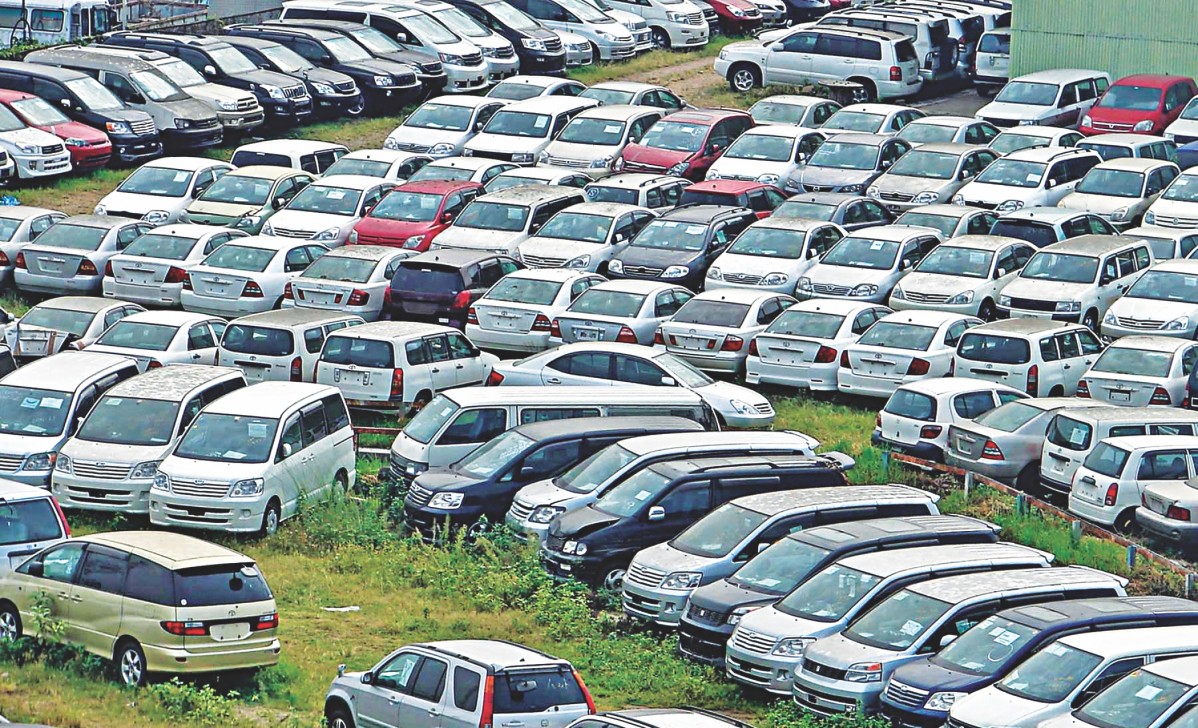Reconditioned car importers in trouble as sales drop

Reconditioned car importers are in deep trouble as their sales dropped drastically in the first five months of the fiscal year because of a faulty tax structure and reduction in depreciation rate, said industry people yesterday.
“Duty structure for reconditioned cars has been set in a way that pushes up the prices of used cars more than the new ones,” said Abdul Haque, president of the Bangladesh Reconditioned Vehicles Importers and Dealers Association (BARVIDA).
He was addressing a press conference at the association’s office at Bijaynagar in the city.
According to the BARVIDA, only 3,438 units of reconditioned cars were imported from July to November. The association could not provide the data on the cars imported during the same period a year ago.
In fiscal 2018-19 that ended on June 30, a total of 12,502 units of reconditioned cars were imported, down 46 percent from a year ago, when 23,075 units were brought in.Haque said car import is declining continuously because of higher duties, a fall in price depreciation, currency devaluation, and higher bank interest rate.
The government has brought down the maximum depreciation of imported reconditioned vehicles to 35 percent in 2018-19 from 45 percent in 2015-16, increasing the import duty and the price of cars.
Car depreciation is the difference between how much a car is worth when it is bought and how much it is worth when sold. The value goes down over time with the wear and tear of everyday use. So, the more one drives a car, the faster the car’s value depreciates.
Haque said importers are entitled to a maximum 35 percent depreciation on the brand new price for four-year old cars but there is no depreciation for a one-year old car.
The price difference between reconditioned and brand new cars is very insignificant because of the reduction in the depreciation, he said.
“Under these circumstances, importers are facing financial losses due to lower imports. Even the government is being deprived of revenue from the sector.”
He said the duty structure is creating disparity between reconditioned and brand new car importers.
About the allegation of environmental pollution caused by used cars, Haque said Japan exports reconditioned cars after testing their carbon emission level. Even Japan itself is a big market for used cars.
The Barvida demanded a separate institute for examining environmental pollution by cars and called for banning old cars to save the environment.
Mohammed Shahidul Islam, chairman of HNS Group and secretary general of the Barvida, said imports fell because of an increase in customs duty and higher lending rates.
Besides, the economy has not picked up as expected even 11 months after the general elections, he said.
He said the interest on auto loans reached 14 to 16 percent, the highest in the world.
Banks provide limited loan facility due to their own liquidity crisis. At present, customers can avail around 50 percent of the cost of a car as loans from banks, but it should be 90 percent, he said.
The devaluation of the taka also played a part in bringing down the import of the used cars.
The exchange rate of the taka was Tk 84.9 per US dollar on November 28 this year, up from Tk 83.9 on November 29 last year, Bangladesh Bank data showed. It was Tk 82.3 in November 2017.
According to the Barvida, used car importers invested around Tk 20,000 crore and about Tk 4,000 crore in taxes are deposited to the government coffer every year. But the revenue collection from the sector will go down due to the lower imports.
So, the government should address the situation and introduce a sustainable policy for the sector, it said.
SM Anowar Sadat, senior vice president of the Barvida, Mohammad Saiful Islam, second vice president, Md Jashim Uddin Mintu, third vice president, and Mohammad Anisur Rahman, treasurer, were present at the media briefing.
